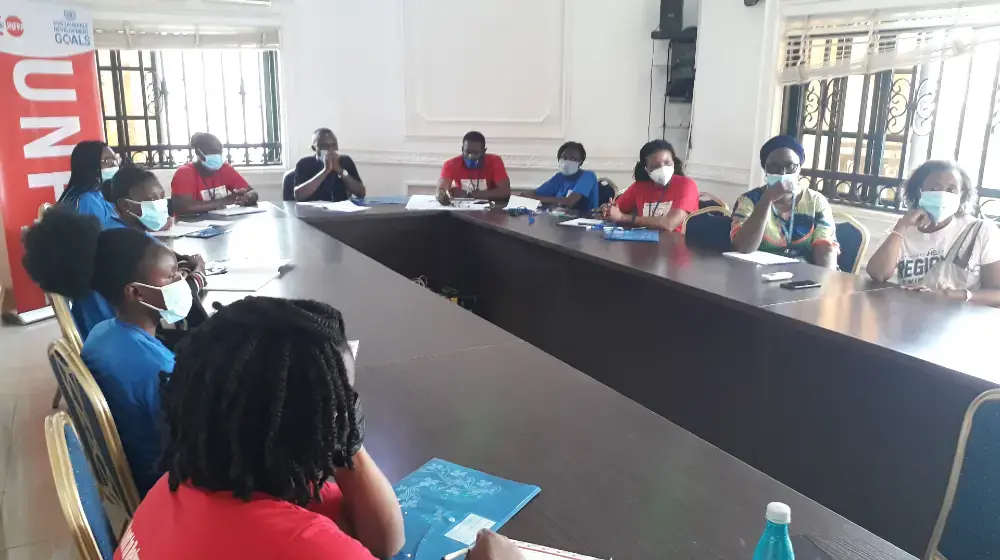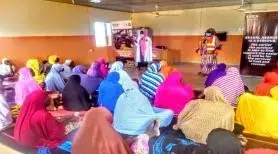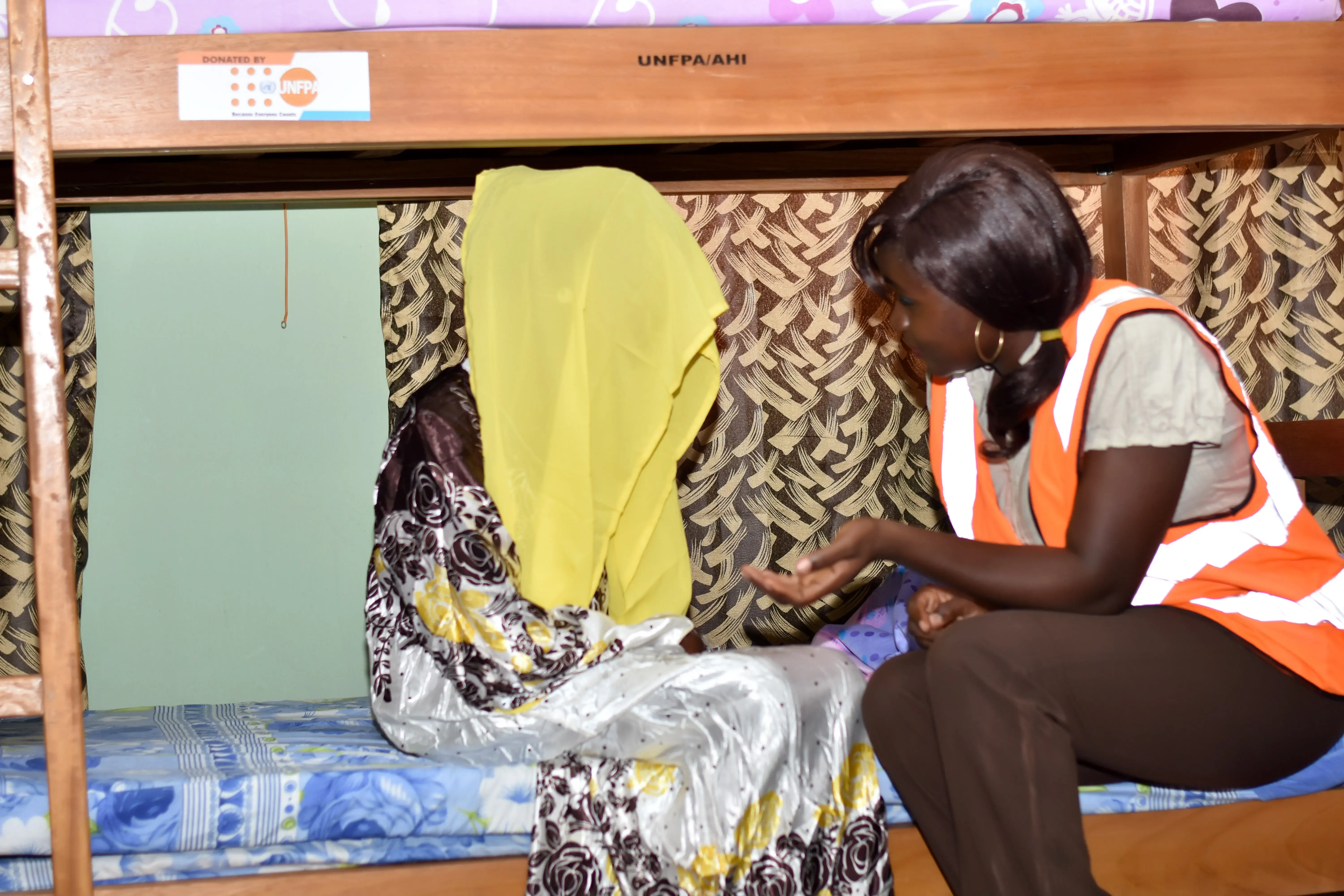UNFPA extends SRH Support to Female Cameroonian Refugees in Abuja, Nigeria
The worsening violence in Cameroon’s Anglophone regions continues to take an increasingly heavy toll on civilians. UNHCR estimated that the ongoing hostilities have led to the displacement of over 700,000 and have forced up to 63,800 civilians to flee across the border to Nigeria. This displaced population is frequently subjected to economic and physical vulnerabilities.
Rose was a practicing Nurse in Cameroon before the crisis led to her displacement to Nigeria as a refugee in 2018, where she had high hopes of restarting her life. This hope was quickly stifled when she was sexually assaulted by someone she trusted and believed would support her economic empowerment and survival. Despite this trauma, Rose demonstrated resilience and used her experience as a motivating factor to start a Non-Governmental Organization (NGO) to support Cameroonian refugees that continue to face similar risks and protection issues in Nigeria. Some of the refugees needed encouragement as they also encountered gender-based violence (GBV) and sexual and reproductive health (SRH) issues, lack of access to basic healthcare, and economic hardship resulting in day-to-day struggles to make ends meet, which often propelled them into sex work.
In order to empower refugees to make informed choices about their sexual and reproductive health and rights, the United Nations Population Fund (UNFPA) in collaboration with UNHCR and Endam Home of Hope (EHOP) in Abuja organized a one-day awareness session with female Cameroonian refugees. This session created awareness on SRH, including family planning, sexually transmitted infections (STIs), HIV, GBV, and Protection from sexual exploitation and abuse.
The refugees expressed their appreciation and described how empowered and enlightened the session was for them. The interactive exercise also included a demonstration of the correct use of male and female condoms, framed in the context of dual protection against unwanted pregnancies and STIs, including HIV. Male and female condoms and awareness materials were also donated to the participants. As a result, UNFPA has been requested to continue to provide similar support to the Cameroonian refugee population in Nigeria.





